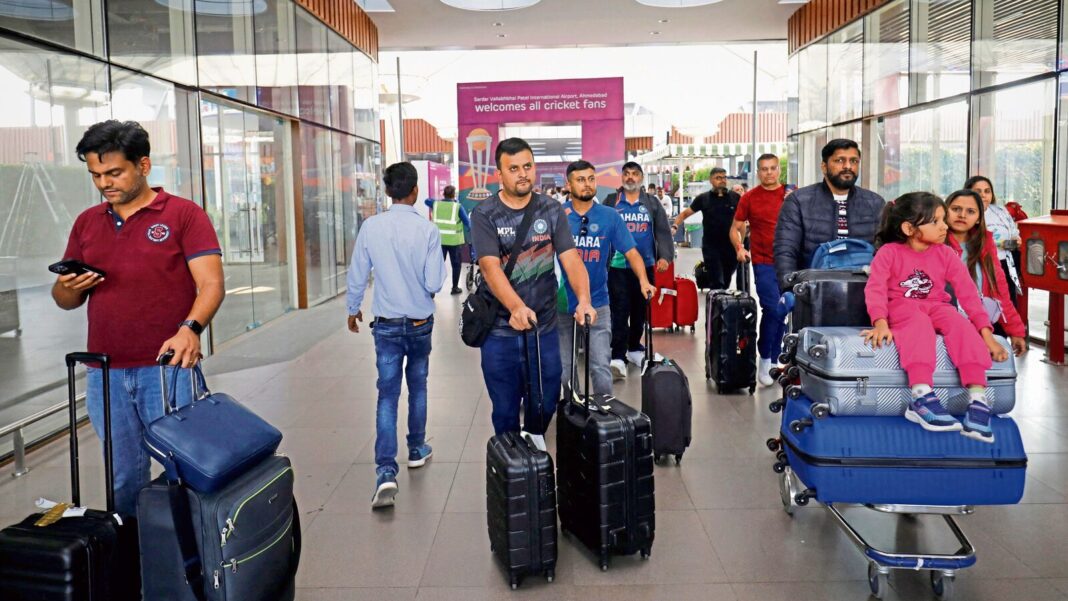In Short:
India and South Korea are discussing to improve their existing bilateral air service agreement, which gives countries rights to use airspace and airports but also limits flights. In 2015, the capacity for flights between the two countries was increased. Discussions are now taking place to further increase flights, points of call, and establish cargo routes. Similar assessments are being done with the UAE.
Hey there from New Delhi! Guess what? India and **South Korea** are currently chatting it up to boost their existing bilateral air service agreement. Yep, you heard it right!
Now, before we dive into the details, let’s understand what a bilateral air service agreement is all about. It basically gives countries like India and South Korea certain rights to use each other’s airspace and airports for their airlines. But, here’s the catch – it also puts a cap on the number of seats and flights. Tricky, huh?
Did you know that India has these bilateral air service agreements with a whopping 116 countries? That’s a whole lot of connections!
The current air service agreement between India and **South Korea** has been the same since 2015. Back then, they upped the capacity from six flights per week to 19. Talk about progress!
One of the officials in the know mentioned, “India and Republic of Korea are currently looking at the existing flight restrictions under their bilateral air service agreement. Both sides are eager to increase the number of permitted flights.” Exciting stuff, right?
Ever since Covid restrictions eased off in March 2022, air traffic between India and **South Korea** has been booming! In fact, the latest data shows that the number of passengers flying between the two countries more than doubled from Jan-Mar compared to a year ago. That’s some serious air miles!
Enhancing Air Rights
During the same period, international traffic to and from India saw an 18% increase, reaching a total of 17.9 million passengers. Talk about flying high!
But wait, there’s more! In 2015, after a couple of rounds of talks, both countries decided to boost their bilateral air rights. Now, they’re back at it again, trying to figure out the best way forward.
What’s on the agenda this time around? Discussions are focusing on adding new points of call, increasing the number of flights, and setting up cargo routes for airlines. Sounds like they’re really taking this to new heights!
When it comes to direct flights, Delhi-Seoul is currently the only scheduled service between India and **South Korea**. Air India and Korean Air are leading the way with non-stop flights. Who’s up for a trip?
Looking ahead, other Indian airlines like Vistara and IndiGo are eyeing Seoul as a potential destination. It’s all about expanding horizons and connecting more people!
India-UAE Agreement Update
But that’s not all on the aviation front! The civil aviation ministry is also taking a closer look at the bilateral air service agreement with the UAE. Things are a bit more complicated here due to differing opinions from Indian airlines.
It seems like domestic carriers are split on allowing more access to foreign airlines, especially those from West Asia, in India’s rapidly growing aviation market. Decisions, decisions!
One of the officials mentioned, “Airlines from the UAE are quite persistent about expanding the bilateral air service agreement, especially on the India-Dubai route. We’re considering all options and looking to accommodate everyone’s needs.”
New players like Akasa Air are eager to jump in on the action, while established carriers are cautious about opening the floodgates to foreign airlines. It’s a delicate dance of supply and demand in the sky!
With big orders for new aircraft and plans for global connectivity, Air India and IndiGo are set to take Indian airlines to new heights. The skies are the limit!





